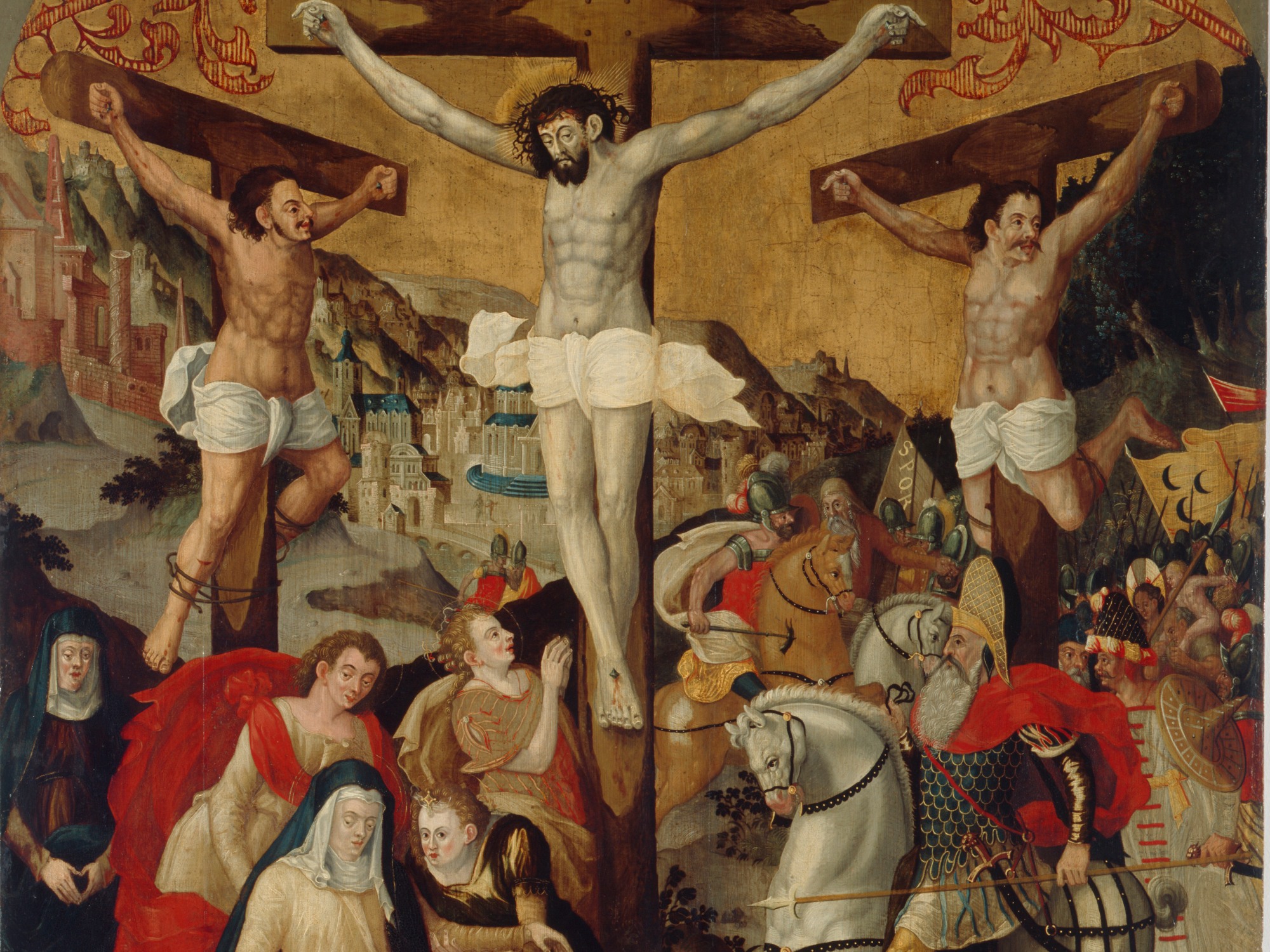The Bible tells us that Jesus was crucified on Golgatha Hill alongside two thieves. The two men hung on the cross next to Jesus have become quite significant in regard to Christian tradition, but the synoptic gospels give us very little information on who they were or what crimes they committed. Some gospels also seem contrary to others regarding the thieves’ last words on their crosses. Considering how frequent the thieves are referred to in contemporary Christian culture, the lack of particular information pertaining to the them makes one wonder if there is any more to the story.
The thieves are best identified by their cries to Jesus while on the cross in the Gospel of Luke. One reviled Jesus and beckoned him to save them, while the other asked Jesus to remember him.
39 One of the criminals who were hanged railed at him,[a] saying, “Are you not the Christ? Save yourself and us!” 40 But the other rebuked him, saying, “Do you not fear God, since you are under the same sentence of condemnation? 41 And we indeed justly, for we are receiving the due reward of our deeds; but this man has done nothing wrong.” 42 And he said, “Jesus, remember me when you come into your kingdom.” 43 And he said to him, “Truly, I say to you, today you will be with me in Paradise.”
Luke ch 23 v 39-43
The repentant thief is named Dismas in the non canonical Gospel of Nicodemus while the other is called Gestas.

Both the gospels of Matthew and Mark give a different account of what happened:
38 Two rebels were crucified with him, one on his right and one on his left. 39 Those who passed by hurled insults at him, shaking their heads 40 and saying, “You who are going to destroy the temple and build it in three days, save yourself! Come down from the cross, if you are the Son of God!”
Matthew ch 27 v 38-40
27 And with him they crucified two robbers, one on his right and one on his left.[e] 29 And those who passed by derided him, wagging their heads and saying, “Aha! You who would destroy the temple and rebuild it in three days, 30 save yourself, and come down from the cross!”
Mark ch 15 v 27-30
If Matthew and Mark’s agenda was to get men and women to repent, why would they leave out the story of the repentant thief? For those that respect the integrity of scripture, there are two possibilities: that both thieves reviled Jesus and later Dismas asked Jesus to remember him, or that Matthew and Mark were employing a synecdoche- a literary technique that uses the whole to represent the few or visa versa. The bible, after all, is full of literary devices. There is no finite answer, though, as to why this contradiction of gospels exists.
So what did the thieves steal to earn them a cross on Golgatha? They must have shoplifted some expensive merchandise. Actually, nowhere in Roman literature does it suggest that a common thief was ever crucified. Crucifixion, instead, was a common display to discourage rebellion. The two men crucified next to Jesus must have been violent, rebellious criminals. Why, then, were their titles softened to “thieves” or “robbers”? It was essential to the writers of the New Testament that Jesus be crucified next to common criminals because: Jesus died for the common sinner and Jesus’s revolutionary persona would have stood out less if he had been crucified next to two alternative revolutionaries.
Because of the account that Luke gives us, Dismas, or the repentant thief, has gained notoriety in Christian customs. Although St. Dismas was never formally canonized by the Catholic Church, he is regarded as a saint by virtue of Jesus saying he would be in paradise, and by church tradition. Dismas has become a symbol used by the church for the repentant sinner.

